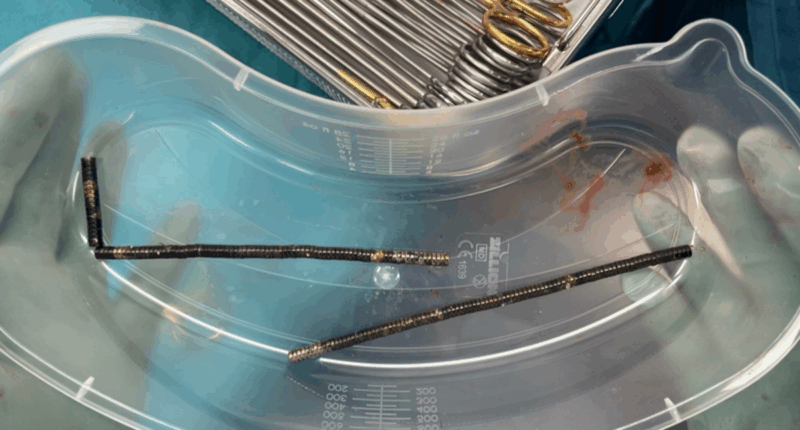Doctors in New Zealand had to remove part of a 13-year-old boy’s intestine after he swallowed dozens of strong magnets bought from a popular online marketplace.
The boy swallowed up to 100 small, high-powered magnets he ordered from Temu, despite the objects being banned for sale for personal or domestic use in the country since 2014.
Surgeons called the case “alarming” due to the difficulty in enforcing the ban, with online marketplaces allowing children to access the magnets cheaply.
“We present the case of a 13-year-old boy admitted to hospital with four days of generalised abdominal pain,” surgeons at the Tauranga Hospital wrote in the New Zealand Medical Journal.
“He disclosed ingesting approximately 80–100 5x2mm high-power (neodymium) magnets about one week prior, which were purchased from an overseas online marketplace (Temu),” they wrote in the study.
Neodymium is a rare-earth metal element used to make some of the strongest magnets available and they can be easy to buy online. When ingested, such magnets can punch holes in the intestine, and be life-threatening, doctors warned.
“When swallowed, these magnets can attach to each other through the bowel, leading to fistulas, which are abnormal connections between two parts inside of the body, or they can create holes in the intestines,” paediatric gastroenterologist Sunpreet Kaur said.
“These magnets can do a lot of damage, require surgery, or even cause death when swallowed,” according to a blog post by the University of California Davis Health.

The latest case in New Zealand serves as a warning about online marketplaces for children, researchers said.
“We believe this case highlights the dangers of online marketplaces in our paediatric population,” the doctors wrote.
Such magnets have been marketed as toys for children and sold in sets to make different shapes and also to be used as fidget toys. “Unfortunately, they often come as brightly coloured small balls, making them attractive for children to swallow. Indeed, small high-power magnets are so dangerous that they are banned for sale in certain situations in both Australia and New Zealand,” said professor Alex Sims from the University of Auckland.
New Zealand law bans the sale of such magnets for personal or domestic use, but they can still be used by educational institutions for teaching purposes or in other products.
“The issue of enforcement compounds when, as the authors note, products are purchased on overseas online marketplaces, which are easily accessible by children, with purchases being inexpensive and not always requiring age verification’,” Dr Sims said.
“Parents should not be allowing their children to purchase items unsupervised on any online marketplaces, all purchases must be done or at least overseen by parents,” she said.
Temu said it has launched an internal review after becoming aware of the case.
“We are sorry to learn about the reported incident and wish the boy a full and speedy recovery,” Temu said, according to Radio New Zealand.
“We take product safety very seriously and continuously monitor our platform to ensure sellers are complying with the safety regulations of the markets they are doing business in,” the company said.









